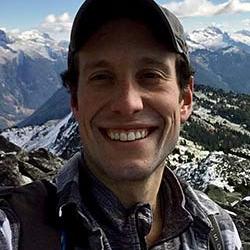How do ecosystems respond to changes in disturbance regimes, such as fire suppression in naturally burning savannas, or more frequent burning in forests that historically only burned periodically? What fundamental processes govern the responses of ecosystems to these changes, such as the role of soil properties and plant community composition? These are some of the questions that our lab seeks to understand. We ground our work in experimental research, taking advantage of the diverse sets of fire manipulation experiments across the globe combined with the advances in ecosystem models.
Our work spans many ecosystems across the globe in Africa, South America, and the United States to try to ascertain generalities in how ecosystems respond to fire, but also using natural variability as a platform to test hypotheses around mechanisms.
-
How resilient are western US forests to changing fire regimes?
-
What biogeochemical changes in soils either buffer against or accelerate ecosystem carbon and nutrient losses?
-
How do plant traits modify the effect of fire on ecosystems?
-
What are global patterns in how ecosystems respond to fire across the tropics?
Climate Change Seminar Series
Adam organised an online seminar series Cambridge Climate Seminar Series: Industry Approaches to Carbon Offsetting and Emission Mitigation, which looked at approaches to forecasting climate-resilient industries and pathways to slow climate change and improve sustainability. The series ran from from 25 January to 1 March 2022. See details here
More information
To find out more about the research carried out by the Ecosystem and Carbon Science Research Group visit the Pellegrini Lab website.

